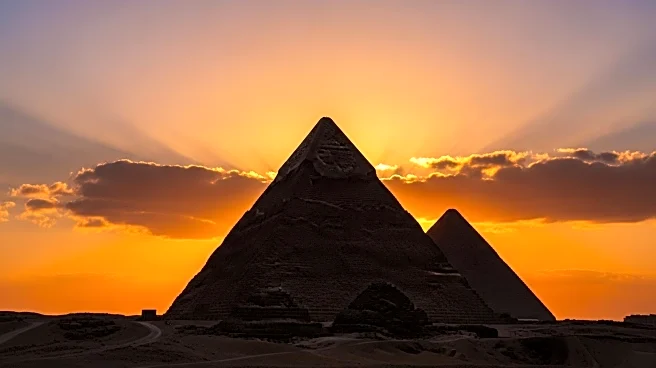Cairo, the capital of Egypt, has a rich and complex history that spans over a millennium. Founded in 969 by the Fatimid dynasty, the city has evolved into a major cultural, political, and economic center in the Arab world. Its strategic location along the Nile River has played a crucial role in its development and influence throughout history.
Origins
Cairo's origins can be traced back to the ancient Egyptian civilization, with nearby sites such as the Giza pyramid complex and the ancient cities of Memphis and Heliopolis. The area that would become Cairo was initially part of ancient Egypt, with the settlement of Fustat serving as a precursor to the city. Following the Muslim conquest of Egypt in 641, Fustat became a key urban center, eventually giving way to the founding of Cairo by the Fatimid dynasty in 969.
Key Phases
Cairo's history can be divided into several key phases, each marked by significant developments and changes. The city's founding by the Fatimid dynasty in 969 marked the beginning of its rise as a major urban center. During the Ayyubid and Mamluk periods, Cairo became a center for Islamic learning and culture, with institutions like Al-Azhar University playing a crucial role. The Ottoman period saw further expansion and development, with Cairo becoming a key center for trade and commerce.
Turning Points
Several turning points have shaped Cairo's history and development. The decline of Fustat and the rise of Cairo as the main urban center during the Ayyubid and Mamluk periods marked a significant shift in the city's status and influence. The construction of key architectural landmarks, such as the Al-Azhar Mosque, further solidified Cairo's role as a center for Islamic learning and culture. The city's strategic location along the Nile River has also played a crucial role in its development and influence.
Present Status in Source
Today, Cairo remains a major cultural, political, and economic center in the Arab world. The city is home to over 10 million people and is part of the Greater Cairo metropolitan area, one of the largest in the world by population. Cairo's rich history and cultural significance continue to attract tourists and scholars from around the world, making it a key destination for those interested in exploring the history and culture of the Arab world.

 Discover Daily
Discover Daily 








